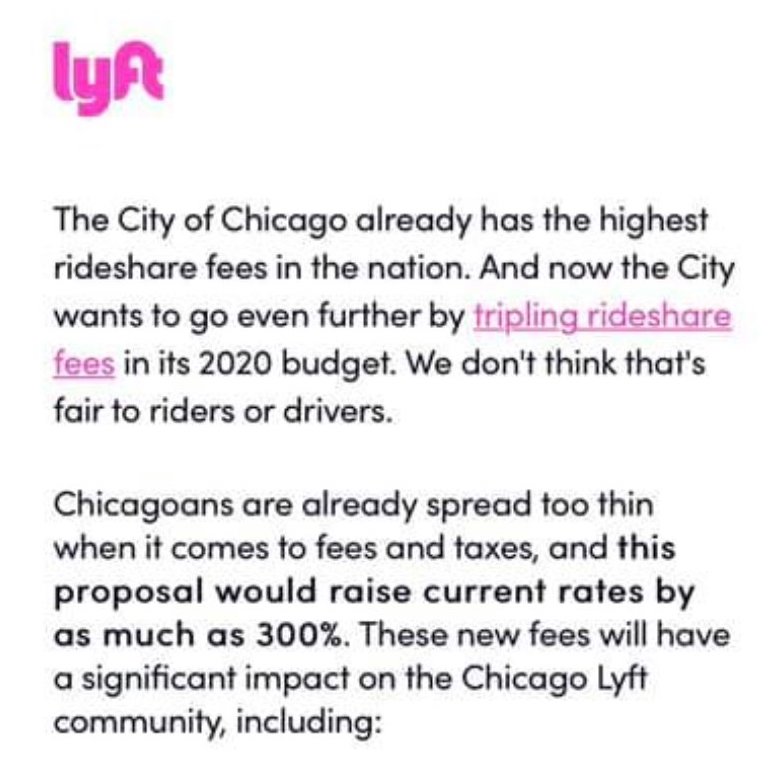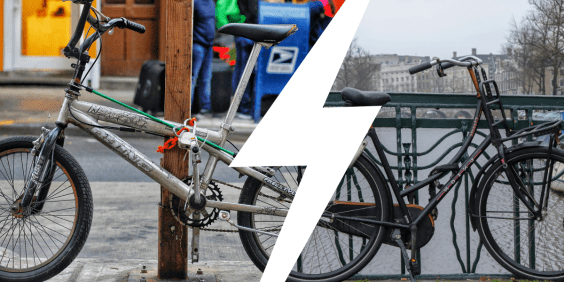Today Mayor Lori Lightfoot presented her 2020 budget proposal to the City Council. Here's what she had to say about her proposal to raise fees for traffic jam-generating private and downtown ride-hailing trips.
"Following our review of congestion data, we’ve determined an increase in our Ground Transportation Tax on downtown ride-share services on weekdays is warranted," Lightfoot said, according to her prepared remarks. "This congestion tax would apply during the key hours between 6 a.m. and 10 p.m. when the central business district faces its highest levels of gridlock."
Here's the fee structure:
- Decreasing the GTT on all citywide shared ride-hailing trips from $0.60 per trip to $0.53 per trip.
- Increasing the GTT on all citywide single ride-hailing trips from $0.60 per trip to $1.13 per trip.
- Assessing a downtown zone surcharge, placing an additional $1.75 fee per trip for single rides and $0.60 per trip for shared rides.
"And if we are smart about this, making this small increase will not hurt our neighborhoods or impair accessibility for disabled riders," Lightfoot said in her written speech.
The reduction in the fee for shared trips like Uber Pool and Lyft Line will help ensure that the new rules don’t unduly impact lower-income communities on the South and West sides. A recent city analysis of ride-hailing data found that more than half of ride-hailing trip requests in those parts of town are for shared trips, as opposed to only 30 percent downtown and on the North Side.
Active Transportation Alliance spokesman Kyle Whitehead said that that so far it's not clear how the new rules would impact people with disabilities, an issue the advocacy group previously raised in talks with the city. (The local disability rights group Access Living has sued Uber in an effort to get the company to provide access to wheelchair users.) However, the new fees would reduce traffic congestion by discouraging unnecessary private and downtown ride-hailing trips, and some of the revenue would be used to improve transit service, particularly bus route, which would benefit people with disabilities who use the CTA.
"I reject – and you should be deeply skeptical – of the false narrative ride-share companies are spreading" against the city's proposal, Lightfoot said in her speech. "The multi-millionaire owners of those companies have had essentially free rein in Chicago."
Lyft, for example, has sent out the following message to riders asking them to oppose the measure.

"And if they cared as much about equity as they say, they would cut their drivers in on a bigger share of profits, improve their working conditions, and not pass their costs on to them," Lightfoot said.
Whitehead told me the city is using a small portion of the new revenue to fund a study of ride-hailing driver working conditions in Chicago.
"Our ride-share proposal will bring in an additional $40 million to our budget, while also lowering vehicle emissions and encouraging the use of more efficient modes of transportation, such as public transit," Lightfoot added. "And our reforms will improve the playing field for our taxi drivers. That is a worthy cause and a fight worth having."
In general, ride-hailing is currently cheaper than taxis, largely due to Uber and Lyft's willingness to burn through large amounts of venture capital without turning a profit.
In addition, Lightfoot said, the city will address its budget gap by increasing rates on our downtown parking meters and adding meters in the West Loop. Although Chicago's parking concessionaire gets the revenue from the current rates and meters, the city projects this new revenue will bring in $7 million for the city.
So far Lightfoot has not mentioned plans to follow through with her campaign promise to earmark $20 million a year in the city budget for walking and biking safety infrastructure, with a focus on underserved communities.
"Active Trans will continue to advocate with the mayor and City Council to make the Safe Streets Fund a priority for future budgets, and take advantage of other funding opportunities such as aldermanic menu funds, federal funds, and the new state capital funds to support projects on high-crash corridors on the south and west sides," said the group's interim director Melody Geraci.






